Introduction: Your Wedding Stationery

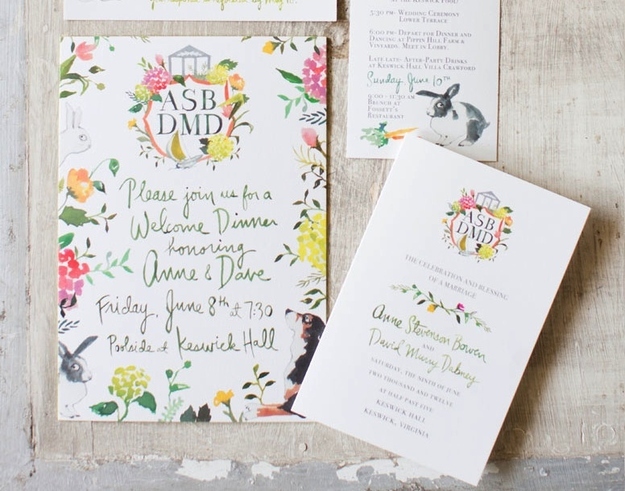
Your wedding stationery is the first glimpse most of your guests will have of your wedding – and no pressure, but you want them to be blown away! This is when you start to reveal who you are as a couple and what your wedding is going to look like (as well as, you know, actually letting everyone know the wheres and whens of it all…) But there’s a whole world of wedding stationery out there – so let’s break down what you need and how to get started choosing it.
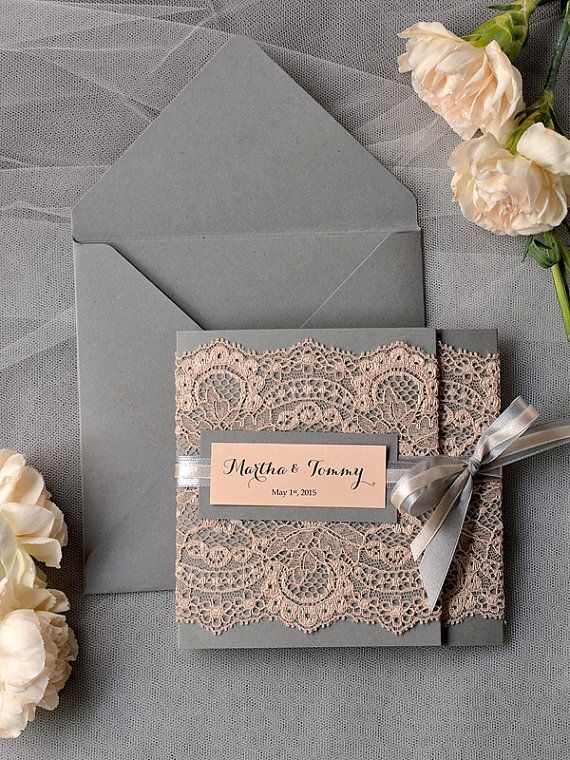
What Wedding Stationery Do You Need?
This is about what wedding stationery you need, not what wedding stationery you want! At a minimum, we tend to expect most couples to send a save the date, followed by a wedding invitation suite – which is just a fancy way of saying your wedding invitation plus some added extras: an RSVP card and your wedding information sheet. On top of this, you’ll also likely be ordering wedding programmes and place cards for the day.
What Information Should You Include On Your Wedding Invitations?
Keep your wedding invitations short and sweet – that’s why you send an information sheet too! Your wedding invitation should include the following key information:
- Who’s invited
- Your names
- The date and time of your ceremony and/or reception
- The venue and location of your ceremony and/or reception
- Dress code
- Number of +1s (if any)
- RSVP details
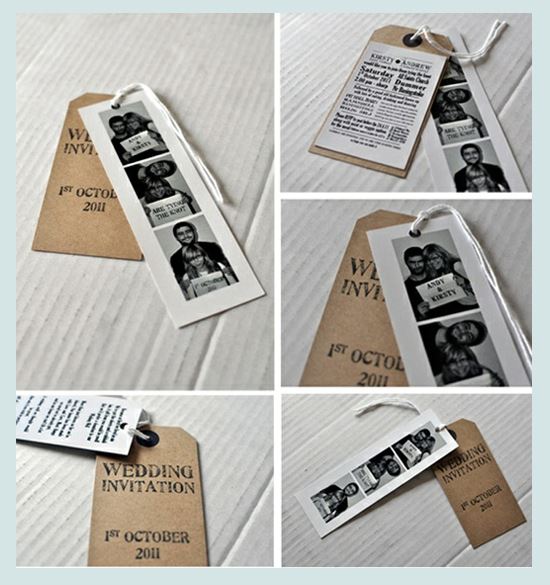
What Information Should You Include On Your RSVP Cards?
Your RSVP cards are for your guests to fill out to let you know whether or not they’re attending and any additional details – so they’ll be providing you with the information! Leave them space to:
- Fill in their names
- RSVP “yes” or “no”
- Let you know their meal choice (if relevant)
- Add any special requests
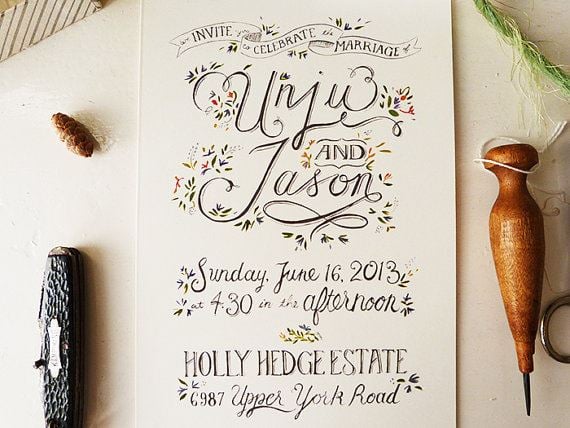
How Should You Choose Your Wedding Stationery?
Your invitations should reflect your wedding so start off by thinking about the overall vibe you want for your wedding. If you’re thinking about your stationery, you’ve probably gotten somewhere with finding your venue – so where’s it going to be? Invitations for a rustic countryside affair will likely look pretty different to ones for a chic soirée in the city centre.
If you’re not sure yet, keep it simple. Consider going for traditional cream, white or ivory invitations with gold or black ink, then add any pops of any colours you’re keen to include on your big day.
Next, you’ll want to think about printing. Now, there are a few different ways of getting your invitations printed – and this can have a huge impact on cost as well as aesthetics, so don’t take this decision lightly! The best way to choose what sort of printing you want is to get samples and see what you like when you’re holding it in your hands.
The most high-end option is engraved printing, which creates raised letters on thick paper. This will give your stationary the most luxurious look and feel. Thermographic printing is a good alternative if you’re on a tighter budget, as this gives a similar look at a lower cost. However, bear in mind that the letters will look slightly shiny if you decide on using this method.
Letterpress printing, on the other hand, might be thought of as the opposite of engraved printing as it results in indented, rather than raised, letters. This is slightly different to embossed printing which doesn’t use any ink and tends to be best for details like monograms.
Your two cheapest options are likely to be digital printing and offset printing. Digital printing is incredibly versatile – think of it as a professional version of the printing you might do at home. Offset printing, on the other hand, uses plates to transfer letters and images and can result in a slightly higher quality product.
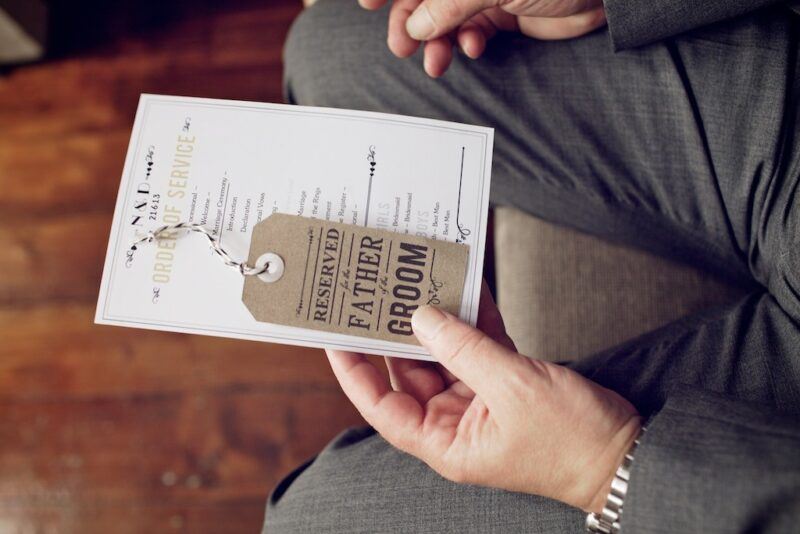
How Should You Send Your Wedding Stationery?
When you design your wedding stationery, remember you’ll be posting them! Traditionally, wedding invitations are a 4’5 x 6’25 inch rectangle. Today, however, many couples choose to send round, square or custom-shaped invitations – and these unconventional shapes can cost more to send.
If you’re asking your guests to mail their RSVPs back to you, budgeting for and including pre-addressed return envelopes and stamps can be a nice touch.
On a similar note, don’t forget to budget for envelopes! Get these as soon as possible. And if you’ll be addressing your envelopes yourself, do it in stages. This will help avoid making careless mistakes.
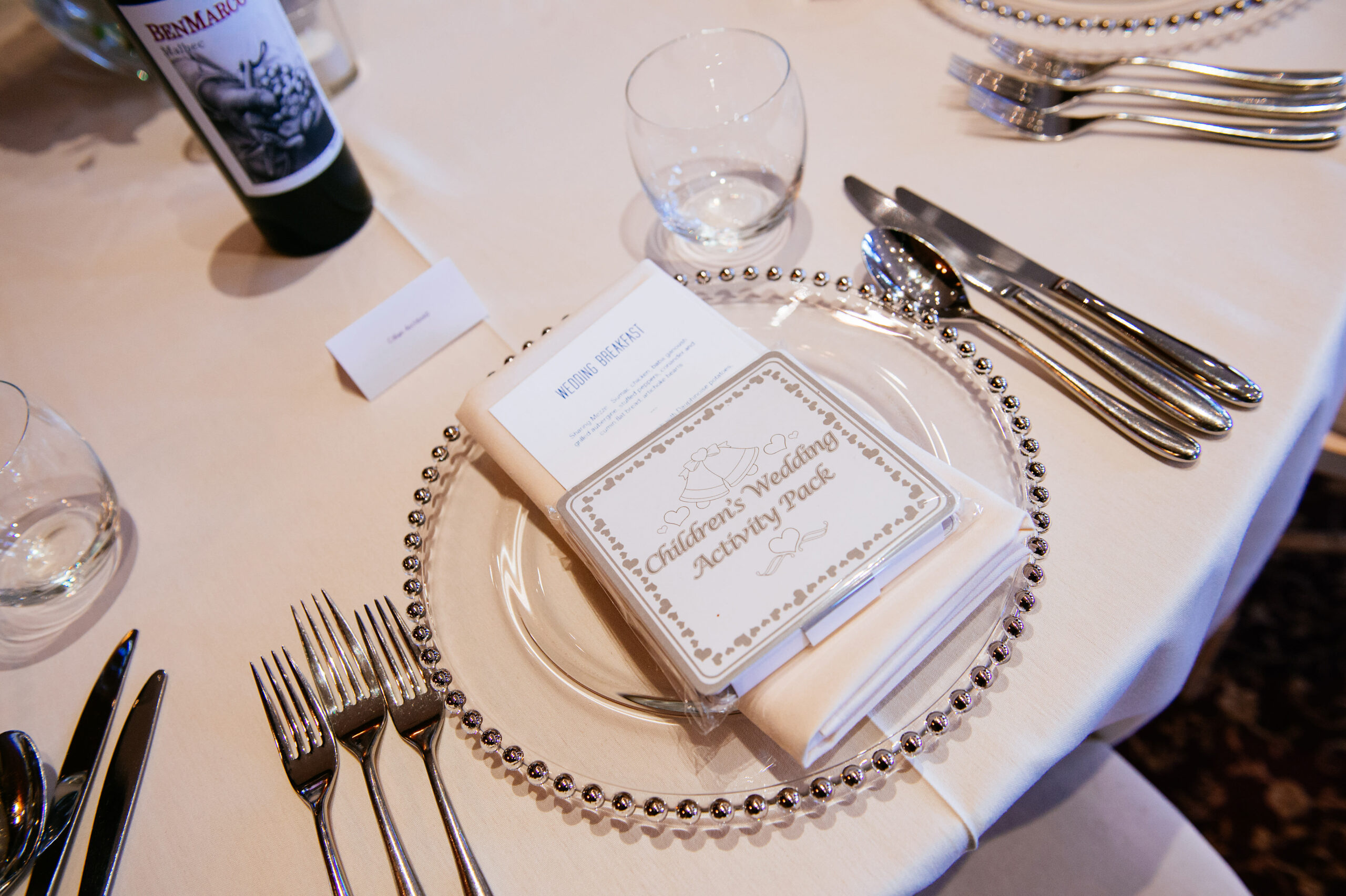
Final Tips
Proofread, proofread and proofread again! If you can, ask at least two other people to give your invitations a once over as well. Our top tip is to read the text from right to left or end to beginning as this will help you catch any small errors.
Always order a few extra invitations! It’s always good to have a backup in case of any mistakes – and you or your parents might want one as a keepsake too.
If you can, try to order all your wedding stationery in one go. This includes your save the dates, wedding invitation suite and thank you cards, as well as any extras like programmes and place cards.
You Might Also Like…
- Saving Tips: Wedding Invitations
- 13 Questions To Ask Before Ordering Your Wedding Stationery
- Wedding Prices: Stationery

